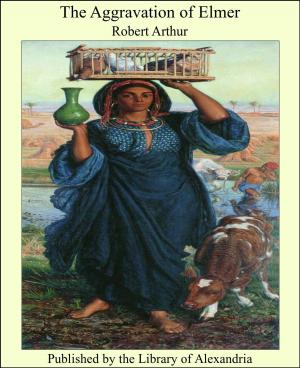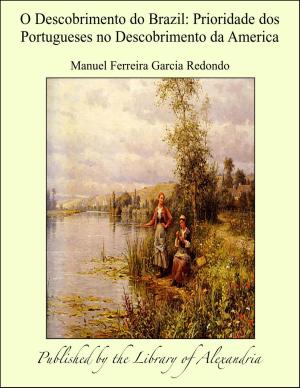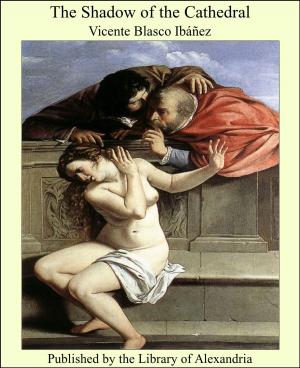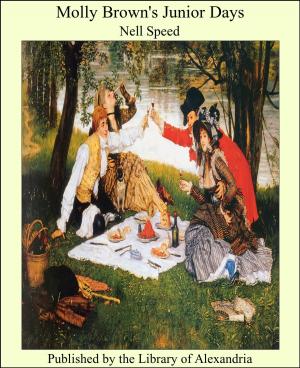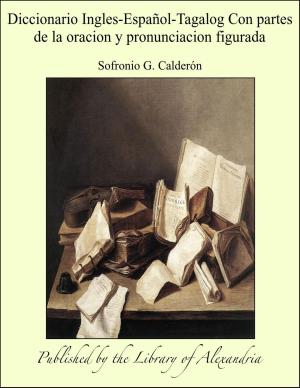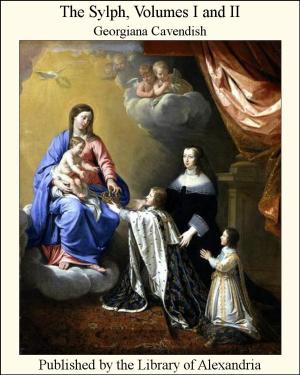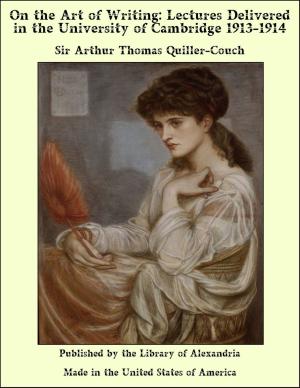The New Life (La Vita Nuova)
Nonfiction, Religion & Spirituality, New Age, History, Fiction & Literature| Author: | Dante Alighieri | ISBN: | 9781465560773 |
| Publisher: | Library of Alexandria | Publication: | July 29, 2009 |
| Imprint: | Library of Alexandria | Language: | English |
| Author: | Dante Alighieri |
| ISBN: | 9781465560773 |
| Publisher: | Library of Alexandria |
| Publication: | July 29, 2009 |
| Imprint: | Library of Alexandria |
| Language: | English |
From reading, Rossetti went on to translating. He translated at an early age, chiefly between 1845 and 1849, a great number of poems by the Italians contemporary with Dante, or preceding him; and, among other things, he made a version of the whole Vita Nuova, prose and verse. This may possibly have been the first important thing that he translated from the Italian: if not the first, still less was it the last, and it may well be that his rendering of was completed within the year 1846, or early in 1847. He did not, of course, leave his version exactly as it had come at first: on the contrary, he took counsel with friends (Alfred Tennyson among the number), toned down crudities and juvenilities, and worked to make the whole thing impressive and artistic—for in such matters he was much more chargeable with over-fastidiousness than with laxity. Still, the work, as we now have it, is essentially the work of those adolescent years—from time to time reconsidered and improved, but not transmuted. Some few years after producing his translation of the Vita Nuova, Rossetti was desirous of publishing it, and of illustrating the volume with etchings from various designs, which he had meanwhile done, of incidents in the story. This project, however, had to be laid aside, owing to want of means, and the etchings were never undertaken. It was only in 1861 that the volume named The Early Italian Poets, including the translated Vita Nuova, was brought out: the same volume, with a change in the arrangement of its contents, was reissued in 1874, entitled Dante and his Circle. This book, in its original form, was received with favour, and settled the claim of Rossetti to rank as a poetic translator, or indeed as a poet in his own right. For The Early Italian Poets he wrote a Preface, from which a passage, immediately relating to the Vita Nuova, is extracted in the present edition. There are some other passages, affecting the whole of the translations in that volume, which deserve to be borne in mind, as showing the spirit in which he undertook the translating work, and I give them here:—“The life-blood of rhythmical translation is this commandment—that a good poem shall not be turned into a bad one. The only true motive for putting poetry into a fresh language must be to endow a fresh nation, as far as possible, with one more possession of beauty. Poetry not being an exact science, literality of rendering is altogether secondary to this chief law. I say literality,—not fidelity, which is by no means the same thing. When literality can be combined with what is thus the primary condition of success, the translator is fortunate, and must strive his utmost to unite them; when such object can only be obtained by paraphrase, that is his only path. Any merit possessed by these translations is derived from an effort to follow this principle.... The task of the translator (and with all humility be it spoken) is one of some self-denial. Often would he avail himself of any special grace of his own idiom and epoch, if only his will belonged to him: often would some cadence serve him but for his author’s structure—some structure but for his author’s cadence: often the beautiful turn of a stanza must be weakened to adopt some rhyme which will tally, and he sees the poet revelling in abundance of language where himself is scantily supplied. Now he would slight the matter for the music, and now the music for the matter; but no, he must deal to each alike. Sometimes too a flaw in the work galls him, and he would fain remove it, doing for the poet that which his age denied him; but no, it is not in the bond.” It may be as well to explain here a very small share which I myself took in the Vita Nuova translation. When the volume The Early Italian Poets was in preparation, my brother asked me (January 1861) to aid by “collating my Vita Nuova with the original, and amending inaccuracies.” He defined the work further as follows: “What I want is that you should correct my translation throughout, removing inaccuracies and mannerisms. And, if you have time, it would be a great service to translate the analyses of the poems (which I omitted). This, however, if you think it desirable to include them. I did not at the time (on ground of readableness), but since think they may be desirable: only have become so unfamiliar with that I have no distinct opinion.” On January 25th he wrote: “Many and many thanks for a most essential service most thoroughly performed. I have not yet verified the whole of the notes, but I see they are just what I needed, and will save me a vast amount of trouble. I should very much wish that the translation were more literal, but cannot do it all again. My notes, which you have taken the trouble of revising, are, of course, quite paltry and useless
From reading, Rossetti went on to translating. He translated at an early age, chiefly between 1845 and 1849, a great number of poems by the Italians contemporary with Dante, or preceding him; and, among other things, he made a version of the whole Vita Nuova, prose and verse. This may possibly have been the first important thing that he translated from the Italian: if not the first, still less was it the last, and it may well be that his rendering of was completed within the year 1846, or early in 1847. He did not, of course, leave his version exactly as it had come at first: on the contrary, he took counsel with friends (Alfred Tennyson among the number), toned down crudities and juvenilities, and worked to make the whole thing impressive and artistic—for in such matters he was much more chargeable with over-fastidiousness than with laxity. Still, the work, as we now have it, is essentially the work of those adolescent years—from time to time reconsidered and improved, but not transmuted. Some few years after producing his translation of the Vita Nuova, Rossetti was desirous of publishing it, and of illustrating the volume with etchings from various designs, which he had meanwhile done, of incidents in the story. This project, however, had to be laid aside, owing to want of means, and the etchings were never undertaken. It was only in 1861 that the volume named The Early Italian Poets, including the translated Vita Nuova, was brought out: the same volume, with a change in the arrangement of its contents, was reissued in 1874, entitled Dante and his Circle. This book, in its original form, was received with favour, and settled the claim of Rossetti to rank as a poetic translator, or indeed as a poet in his own right. For The Early Italian Poets he wrote a Preface, from which a passage, immediately relating to the Vita Nuova, is extracted in the present edition. There are some other passages, affecting the whole of the translations in that volume, which deserve to be borne in mind, as showing the spirit in which he undertook the translating work, and I give them here:—“The life-blood of rhythmical translation is this commandment—that a good poem shall not be turned into a bad one. The only true motive for putting poetry into a fresh language must be to endow a fresh nation, as far as possible, with one more possession of beauty. Poetry not being an exact science, literality of rendering is altogether secondary to this chief law. I say literality,—not fidelity, which is by no means the same thing. When literality can be combined with what is thus the primary condition of success, the translator is fortunate, and must strive his utmost to unite them; when such object can only be obtained by paraphrase, that is his only path. Any merit possessed by these translations is derived from an effort to follow this principle.... The task of the translator (and with all humility be it spoken) is one of some self-denial. Often would he avail himself of any special grace of his own idiom and epoch, if only his will belonged to him: often would some cadence serve him but for his author’s structure—some structure but for his author’s cadence: often the beautiful turn of a stanza must be weakened to adopt some rhyme which will tally, and he sees the poet revelling in abundance of language where himself is scantily supplied. Now he would slight the matter for the music, and now the music for the matter; but no, he must deal to each alike. Sometimes too a flaw in the work galls him, and he would fain remove it, doing for the poet that which his age denied him; but no, it is not in the bond.” It may be as well to explain here a very small share which I myself took in the Vita Nuova translation. When the volume The Early Italian Poets was in preparation, my brother asked me (January 1861) to aid by “collating my Vita Nuova with the original, and amending inaccuracies.” He defined the work further as follows: “What I want is that you should correct my translation throughout, removing inaccuracies and mannerisms. And, if you have time, it would be a great service to translate the analyses of the poems (which I omitted). This, however, if you think it desirable to include them. I did not at the time (on ground of readableness), but since think they may be desirable: only have become so unfamiliar with that I have no distinct opinion.” On January 25th he wrote: “Many and many thanks for a most essential service most thoroughly performed. I have not yet verified the whole of the notes, but I see they are just what I needed, and will save me a vast amount of trouble. I should very much wish that the translation were more literal, but cannot do it all again. My notes, which you have taken the trouble of revising, are, of course, quite paltry and useless

